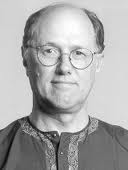Hanukkah, Assimilation and Our Inner Light
by George Wolfe
As someone who discovered two years ago that his father was Jewish and concealed his Jewish heritage to elude anti-Semitism, I now have a new appreciation of Hanukkah, the Jewish “Festival of Lights.”
Historically, the word Hanukkah means “dedication” and refers to the rededication of the temple in Jerusalem that occurred in 168 BCE after Jewish rebels known as the Maccabees defeated the Syrian-Greek occupiers. Purification of the temple required the burning of the lamp in the temple with purified oil. There was, however, only enough oil for the lamp to remain lit for one day. Those in charge of the rededication went out seeking more oil to complete the rededication, but when they returned eight days later, they miraculously found the lamp still burning.
Michele Alperin, in his article “The Maccabees: Heroes or Fanatics” (MyJewish Learning.com) explains the complexities of the uprising against the Syrian-Greek authorities and against the Hellenized Jews who, at the time, sought some degree of assimilation with Hellenist politics. There is a tendency to represent the Maccabean revolt simplistically as “the first battle for religious freedom,” a phrase that resonates well with Americans. But like all violent conflicts, there is a dark side to the rebellion and its aftermath that has some Jewish historians characterizing it as a ruthless civil war where many civilians were killed and young boys forcibly circumcised.
My father’s family, after leaving the Jewish Ashkenazi community and immigrating to the United States in the late 1800s, chose the path of assimilation. Unfortunately, they abandoned their Jewish heritage entirely, most likely because my paternal grandfather chose to marry a German woman outside the faith. At the time, this meant they could not continue as members of a Jewish community. So I can sympathize with the Hellenized Jews in 168 BCE who sought to preserve Jewish customs, yet remain within Greek culture.
Suffice it to say that the following symbolism I attribute to Hanukkah, as opposed to its violent context, is what for me makes the holiday spiritually significant and universal in its meaning.
It is said that the body is the temple of the soul. There is a light within each of us, an inner light of realization and wisdom that dwells in the temple of the body. Through spiritual practice, a person comes to recognize that this inner light is eternally present and continues to burn, regardless of the battles we may be waging in life outside the temple of the body.
For the mystic, this inner light becomes the source of the Hasidic masters’ passionate, ecstatic, and transforming love. As Andrew Harvey expresses it in his foreword to a book of Hasidic tales: “This bliss-fire of Divine love, underpins the whole of the universe and is boundless like the heart it streams from forever.”
Christian mystic St. John of the Cross, uses similar language to describe his experience of what he calls the “living flame of love.” “This flame,” he writes, “the soul feels within it, not only as a fire that has consumed and transformed it in sweet love . . . and that flame bathes the soul in glory and refreshes it with the temper of Divine life.”
The simple miracle of Hanukkah celebrates the transformative experience where the mind of the devotee is awakened. It beckons us to choose light over darkness, and assimilation and inclusion while still preserving our treasured beliefs and traditions.
George Wolfe is Professor Emeritus and former director of the Ball State University Center for Peace and Conflict Studies. He also chairs the Muncie Interfaith Fellowship, is a trained mediator, and the author of The Spiritual Power of Nonviolence: Interfaith Understanding for a Future Without War.



